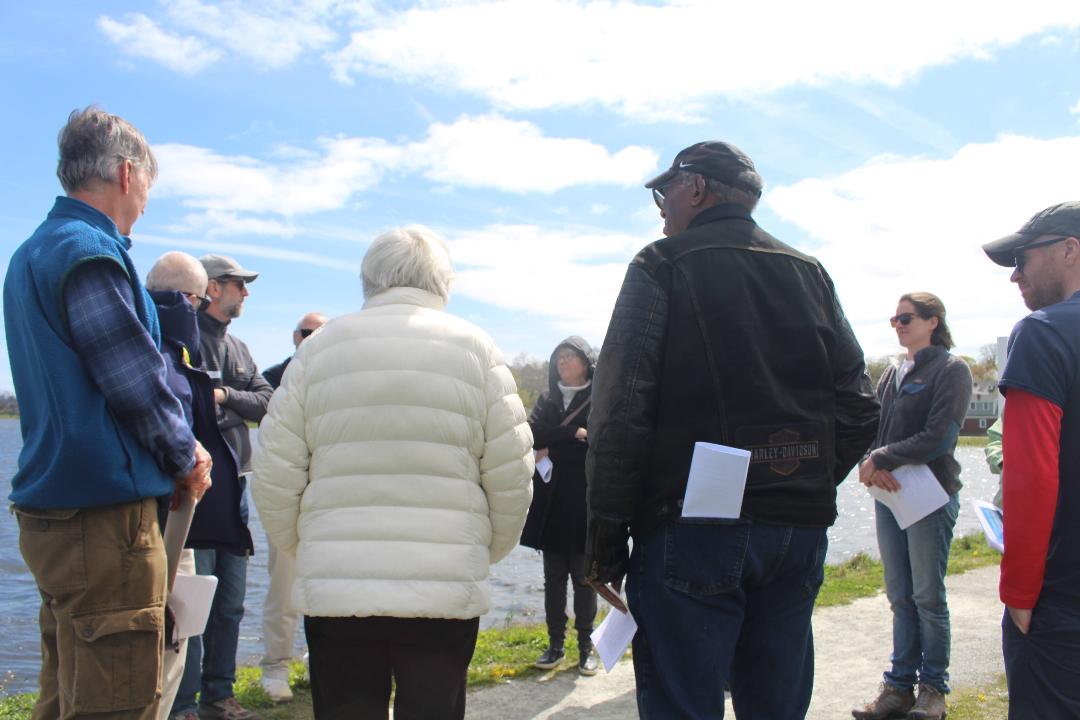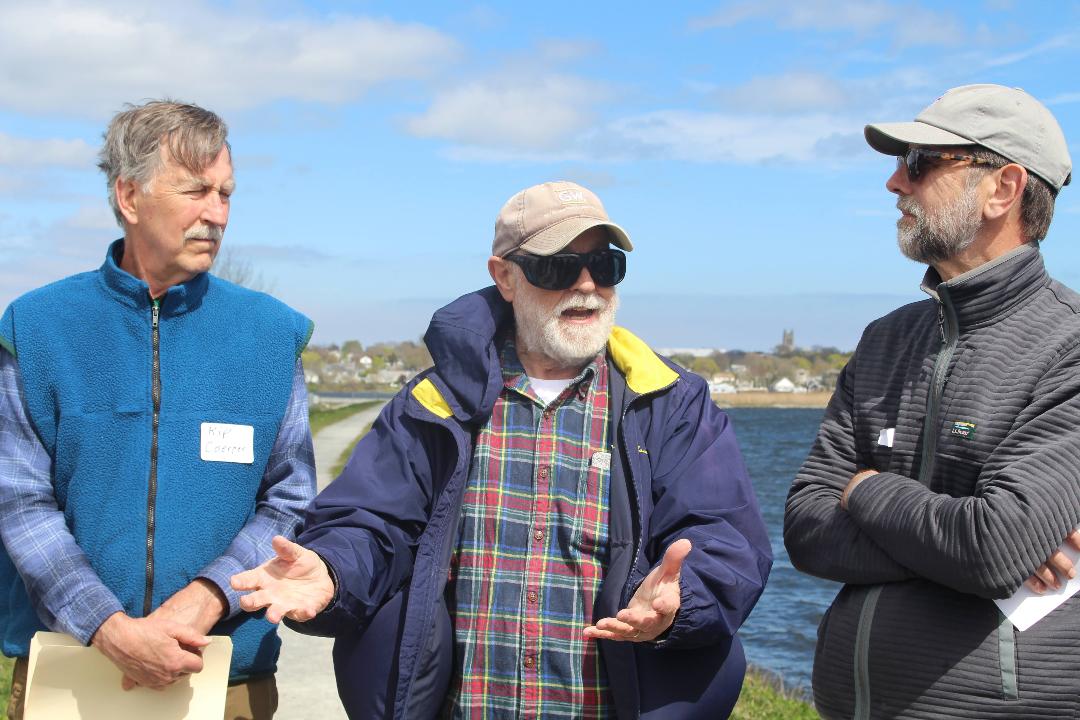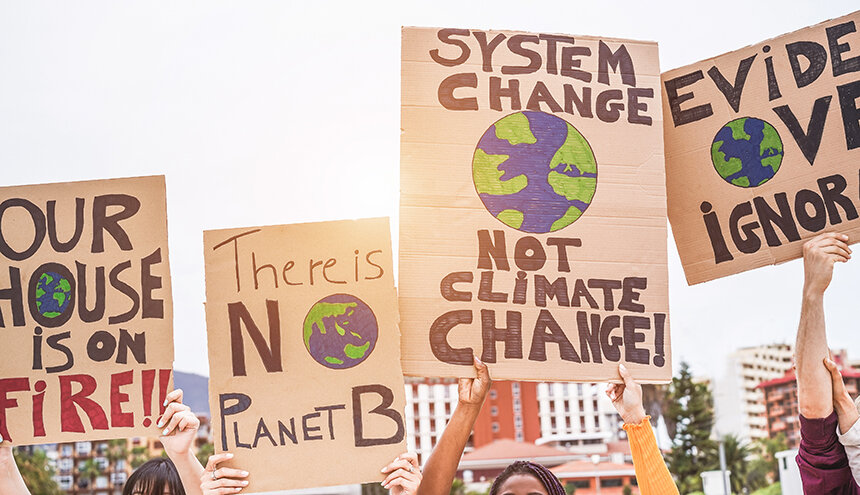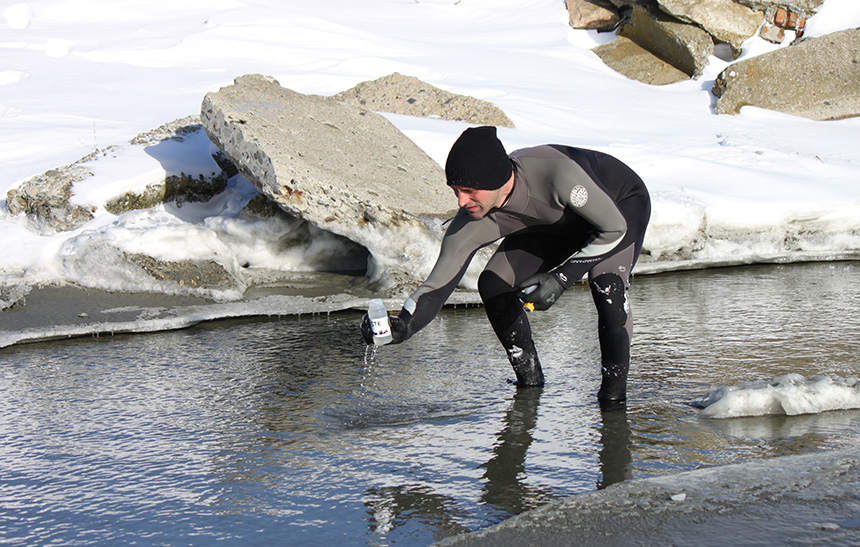Aquidneck Island Walk Melds Environmental Science, Spirituality
May 9, 2024
NEWPORT, R.I. — The wind sang over the sound of prayer.
“And God said that it was good …” a small group, huddled in a circle on the bank of South Easton Pond, said together.
With an “Amen,” a day-long watershed walk — part pilgrimage, part environmental lecture — concluded.
“Wild worship,” Emily Egginton Skeehan, who organized Saturday’s event, called it.
A scientist and Episcopalian, Skeehan is the project manager for the Aquidneck Island Parish Resilience Pilot Project, a local initiative funded by the national The Episcopal Church’s Task Force on the Care of Creation and Environmental Racism to help connect today’s climate problems with the religious teachings of stewardship and creation care — the obligation to take care of all of God’s creations, including other people, creatures, and the Earth.
In addition to hosting the May 4 watershed walk, Skeehan also organized a coastal pilgrimage last fall and several talks at churches around the island on the intersection of religion and environment.
Skeehan, who grew up Episcopalian and is a scientist by training and trade, said the mix of the two have always made sense to her, in part because of the appreciation her parents and priest always showed for the environment.
“It’s all connected, especially when you study environmental science,” she said.
Norman MacLeod, a retired Episcopalian priest who provided the theological component of the parish talks and water pilgrimages, agreed.
“We take for granted that so much of Jesus’s teaching happened in the open air,” he said.
MacLeod has similarly intertwined his reverence for the environment and God in his work as a reverend.
“I could get launched on my homily on the importance of watersheds,” MacLeod said half-jokingly when asked about how the advocacy around protecting drinking water and religion are connected.
To MacLeod, the watershed “is a form of neighbor,” and thus the teaching, “Love thy neighbor as thyself,” should protect the watersheds, but in his opinion, it often doesn’t.
“We are shaped by the waters, but we give them no thought,” he said.
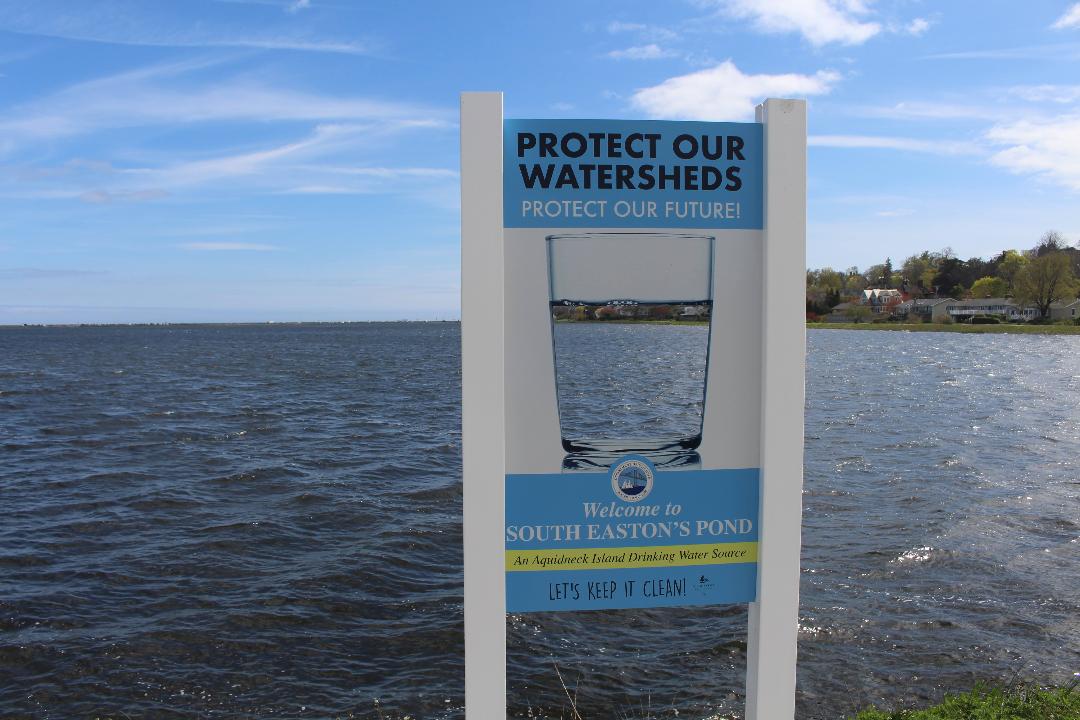
On Aquidneck Island, the seven reservoirs that provide drinking water to residents are all impaired, according to the state Department of Environmental Management and the Environmental Protection Agency. The water must undergo intense and expensive treatment before they can safely supply the island.
Practices large and small can help protect the water sources, which are all connected, including limiting fertilizer use, installing rain gardens, and supporting land conservation to limit the kind of development that may pollute rivers and reservoirs.
The walk aimed to talk about the ways “we have virtually destroyed the water that we have,” while also providing information on how to preserve a “great gift that is very vulnerable,” Skeehan said.
She invited Alex Chuman, the Aquidneck Land Trust’s conservation director, to explain the role of conservation in protecting the island’s waters, while MacLeod and other parish members filled in the gaps with poems, prayers, and discussions of teachings — “elements that are usually found on a Sunday morning at a church,” MacLeod said.
Throughout the sunny and windy Saturday, the group traveled in a van around the island, stopping at locations that are important in the watershed, including components of the water treatment facilities, natural waterbodies that connect to water supplies, and those supplies themselves.
Although the melding of the worlds of religion and science is easy for both MacLeod and Skeehan, engaging other members of their spiritual community can be more difficult, they both said.
MacLeod has been told that some parish members have avoided coming to his homilies because they don’t believe that climate change is real.
Others “may not feel they’re called to engage in this way,” Skeehan said. “We’re starting small,” she added.
Of those who attended Saturday’s walk and tour, several spoke at its conclusion about the beauty and significance of the natural world around the island that they’d never noticed before.
“And I have felt a presence that disturbs me with the joy, of elevated thoughts; a sense sublime of something far more deeply interfused,” one parishioner, Jere Wells, read from a William Wordsworth poem at the end of the walk.
“The community that we’re creating is energizing,” Skeehan said.
